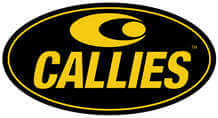
MS Access As A Dev Tool
Access continues to be a highly efficient tool for business database development.
The Best Microsoft Access Database Solutions owner, consultant, and principal programmer is Alison Balter - a recognized expert Microsoft Access consultant. Alison is the author of 15 Microsoft Access training books and videos. She is a frequent guest speaker at MS Access conferences and has developed hundreds of applications for businesses of all types.
We know your business data is important; we listen to your concerns, ask questions, and gather information from all stake holders. We discuss your needs and requirements for your database. We find out what you want, why you need various features so we can obtain as much information as possible. Once we have the information we need, we work with you to design the proper database architecture, plus the dashboards, the questions (queries), forms, and reports you need for an excellent database system.

We also create websites designed for speed to display your data accurately, using ASP.NET technology. Fast, secure, and robust, our ASP.NET web sites and web applications give you true business tool for finding and displaying information dynamically on the web.






Access continues to be a highly efficient tool for business database development.

How to create a Microsoft Access application with some unique tips and tricks.

Your Access developer near me has some great info for you about using Access efficiently.
Call MS Access Solutions at (323) 285-0939 For Complimentary Consultation
The following material is shared here to indicate our commitment to professional Microsoft Access programmer services in the Atlanta GA area. Access programming for business is highly complex and requires dedication and skill to create a high quality database application. We wrote the book on Microsoft Access prgramming, so you know you will get the best possible Access database solution for your business.
The following examples illustrate the difference between local and static variables. Local variables are reinitialized each time the code is called. You can run the following procedure by opening the form named frmScopeAndLifeTime and clicking the Local Age button. Notice that each time you run the procedure, the numeral 1 is displayed in the txtNewAge text box.
Private Sub cmdLocalAge_Click() Dim intAge As Integer intAge = intAge + 1 Me.txtNewAge.Value = intAge End SubEach time this code runs, the Dim statement reinitializes intAge to zero. This is quite different from the following code, which illustrates the use of a static variable:
Private Sub cmdStaticAge_Click() Static sintAge As Integer sintAge = sintAge + 1 Me.txtNewAge.Value = sintAge End SubEach time this code executes, the variable called sintAge is incremented, and its value is retained. You can test this by opening on the accompanying CD-ROM the form named frmScopeAndLifeTime and clicking the Static Age button.
So far, this discussion has been limited to variables that have scope within a single procedure. Private (module-level) variables can be seen by any routine in the module they were declared in, but not from other modules. Thus, they are private to the module. You declare private variables by placing a Private statement, such as the following, in the General Declarations section of a form, report, or Access module:
[General Declarations] Option Explicit Private mintAge As IntegerYou can change the value of a variable declared as private from any subroutine or function within that module. For example, the following subroutine increments the value of the private variable mintAge by 1. You can run this code by opening the form named frmScopeAndLifeTime on the accompanying CD-ROM and clicking the Module Age button.
Private Sub cmdModuleAge_Click() mintAge = mintAge + 1 Me.txtNewAge.Value = mintAge End SubNotice the naming convention of using the letter m to prefix the name of the variable, which denotes the variable as a private module-level variable. You should use private declarations only for variables that need to be seen by multiple procedures in the same module. Aim for making most of your variables local to make your code modular and more bulletproof.
This material originally appeared in Alison Balter's book Mastering Microsoft Office Access 2007 Development. Reprinted here by author's permission.
When you need a Microsoft Access programmer for your Atlanta GA business, call MS Access Solutions at (323) 285-0939. We have over 25 years experience in Microsoft Access programmer solutions. We create Access database applications for all sectors, consisting of hospitals, government agencies, the U.S. military, universities, agriculture, workers services, and insurance provider. We can take care of the most advanced as well as complicated Access and SQL Server database programming for your business as well as smaller projects, like fixing damaged Access database forms, MS Access reports, Access macros, and VBA code.
More Access programmer cities we serve: Access Database Programmer Austin TX.

